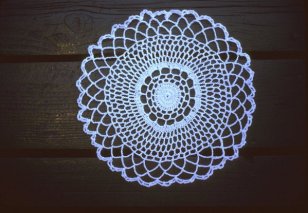EUGENE, Ore. – (March 28, 2012) – Archives of the University of Oregon’s Folklore Program – which document the cultural heritage of Oregon pioneers, minority communities and others – will become more accessible with the help of a new federal grant.
The Federal Institute of Museum and Library Services has awarded $40,000 to improve public access to cultural heritage materials in the Randall V. Mills Archives of Northwest Folklore.
The Oregon Folklife Program collections include primary resources documenting Native Americans, refugees, rural communities, Mexican Americans, African Americans, maritime communities and Oregon pioneer communities.
 Established in 1966, the UO Folklore Program's Archives of Northwest Folklore is a repository of ethnographic collections that document the customary beliefs, social practices and material traits of cultural, religious, occupational and ethnic groups throughout the Northwest. The archives house extensive multi-media materials, some of which can be accessed through the Northwest Folklife Digital Collection at oregondigital.org/digcol/folklore.
Established in 1966, the UO Folklore Program's Archives of Northwest Folklore is a repository of ethnographic collections that document the customary beliefs, social practices and material traits of cultural, religious, occupational and ethnic groups throughout the Northwest. The archives house extensive multi-media materials, some of which can be accessed through the Northwest Folklife Digital Collection at oregondigital.org/digcol/folklore.
The federal funds will be used to help improve access to the Oregon Folklife Program collections using library technologies and programs, including the Archivists' Toolkit, a free and open-source data management system that facilitates publication of finding aids and catalog records; and Northwest Digital Archives, a database of guides to archives collections in regional repositories that is managed by the Orbis Cascade Alliance.
“The Oregon Folklife Program collections have great potential for use in instruction, research and programming, and in many ways, they belong to the people and communities of Oregon,” said Nathan Georgitis, librarian for the UO Libraries and UO Folklore Program.
The Archives of Northwest Folklore will use tools it developed during the first year of a multi-year effort called the “Access to Oregon Folklife Collections Project” to minimally reprocess collections, inventory and assess media materials, build a collections database, and publish finding aids and catalog records.
According to Georgitis, the goal of the project is to improve public access to the Oregon folklife collections for purposes of classroom instruction, academic research, public programs, community use and personal enrichment.
Prior to its placement at the University of Oregon, the Oregon Folklife Program was hosted by the Oregon Historical Society.
About the University of Oregon
The University of Oregon is among the 108 institutions chosen from 4,633 U.S. universities for top-tier designation of "Very High Research Activity" in the 2010 Carnegie Classification of Institutions of Higher Education. The UO also is one of two Pacific Northwest members of the Association of American Universities.
MEDIA CONTACT: Nathan Georgitis, UO Libraries, 541-346-1852; nathang@uoregon.edu
Note: The University of Oregon is equipped with an on-campus television studio with satellite uplink capacity, and a radio studio with an ISDN phone line for broadcast-quality radio interviews.
###